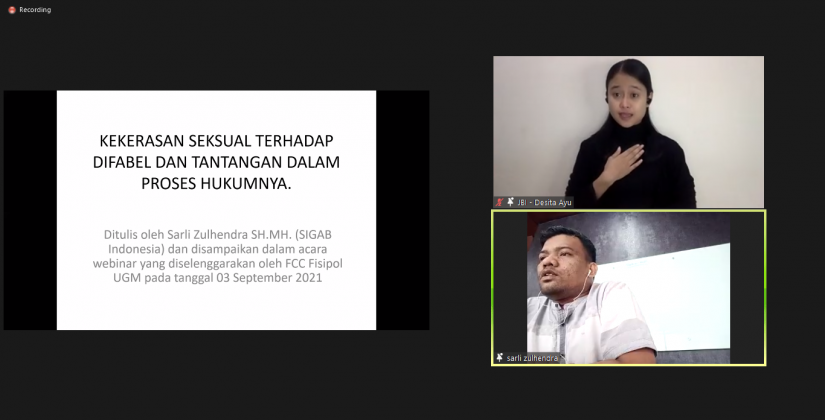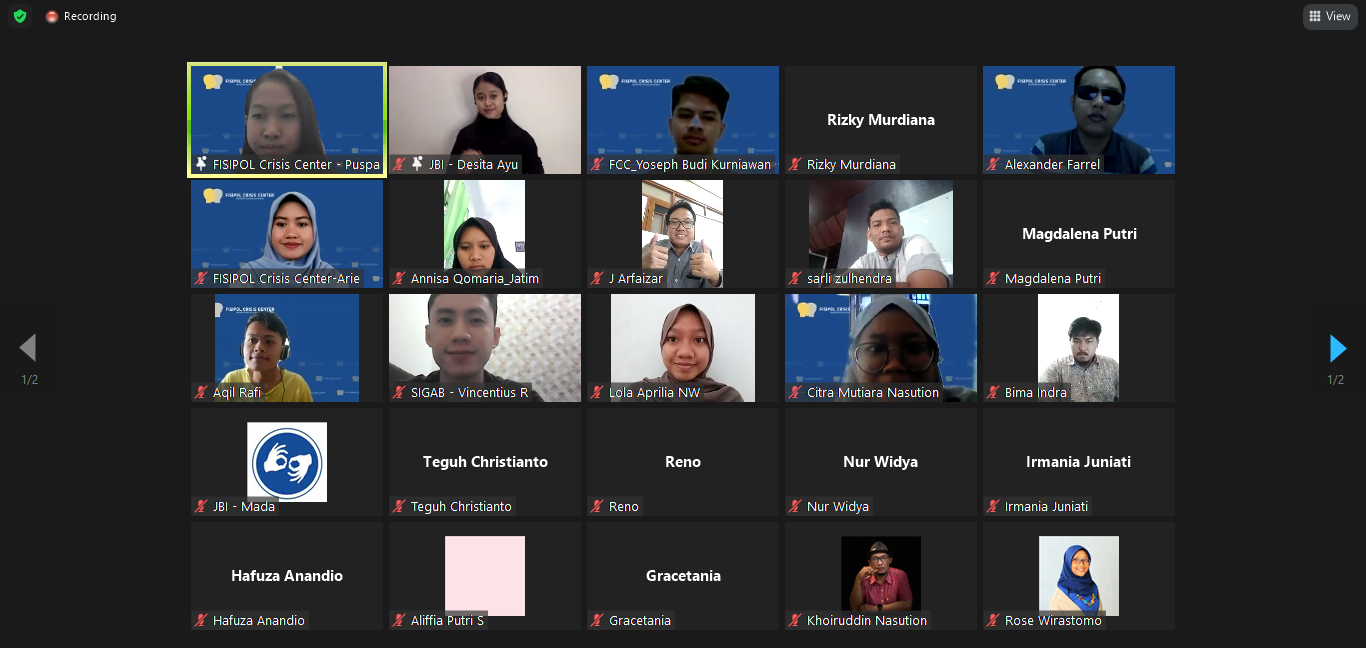
Yogyakarta, September 3rd 2021─FISIPOL CRISIS Center (FCC) UGM organizes the safe social space webinar with the title “Disabled and Sexual Violence”. The event was held online and presented two speakers namely Sarli Zulhendra, a member of the Sigab Advocacy Team and Alexander Farrel, one of the disabled students of UGM. In addition, this webinar also presented two signal interpreters, so the event was held quite inclusive. On this occasion, the event was attended by 48 participants with a discussion on sexual violence against disabilities, ways that could be done to prevent sexual violence, and ethics to serve disabled in handling cases of sexual violence.
Opening the webinar event, the first material was delivered by Sarli Zulhendra. In its narrative, Sarli delivered material related to sexual violence and its challenges in the legal process. Previously, as an advocate, Sigab Sarli was quite a lot to accompany various cases of sexual violence. Sigab itself is an independent and nonpartisan institution that fights for disabled rights in various issues. In advocacy practice, Sigab itself began to accompany cases of sexual violence disabled since 2012, in this case there is a fairly severe challenge, because law enforcement officials are very discriminatory against disabled friends. In addition, stigma which has been attached to a disabled group, often causes them to be considered unable to provide information in accordance with the general standards. Therefore, the principle of accessibility needs to be a foundation in various handling cases of disabled sexual violence. Some things that need to be fulfilled are presenting an expert who is able to understand disabled friends, build friendly infrastructure with disabilities, and be polite to the disabled group.

Efforts to create universities that are able to prevent sexual violence against disabled people can be carried out in several ways, including increasing campaigning campus friendly from sexual violence, incorporating the principle of protection of persons with disabilities in campus statutes or faculty rules, and seeking fulfillment of appropriate accessibility and accommodation in education. Adding the material from the first speaker, Alexander Farrel revealed that a commitment was needed from various circles in creating inclusive and safe spaces for disabled friends. In this case, the support of the closest people like family is one of the keys to realizing the achievement of protection and prevention of sexual violence. By applying educational from the smallest environment, such as family, then continuing to the friendship environment, until a broader environment is expected to be an effective way in preventing sexual violence against disabled.
